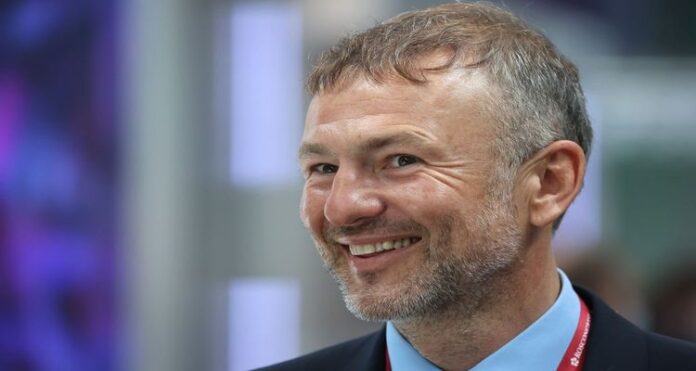| Translate This News In |
|---|
On March 4, in the dead of night, Italian police surrounded a 215-foot superyacht belonging to Russia’s fourth-richest man, Alexey Mordashov, in the Ligurian port of Imperia.
The European Union sanctioned the billionaire on February 28, just days after Russia invaded Ukraine. Authorities appear to have frozen his extensive holdings in Europe, including “Lady M,” with its swimming pool and beauty salon.
Mordashov, on the other hand, had already made his own moves.
On the same day, he was sanctioned, the steel magnate transferred control of a $1.1 billion stake in Nordgold, a London-based mining company, to his wife, Marina Mordashova. He also transferred a portion of his $1.7 billion stakes in TUI AG from a Cyprus holding company to one incorporated in the British Virgin Islands.
As lawmakers around the world increase pressure on Russia’s elite in order to put pressure on President Vladimir Putin, they frequently point to blocked superyachts, luxury real estate, and sports clubs as evidence that their efforts are working.
The truth, however, is murkier, revealed in arcane corporate filings that can take days to become public. They show Russian billionaires changing ownership stakes, stepping down from board positions, and relinquishing control, all in an effort to stay ahead of officials in the United States, the United Kingdom, and the European Union and restructure their assets while they can.
Mikhail Fridman, for example, was sanctioned by the EU alongside Mordashov and his business partner Petr Aven. According to filings, he ceded control of at least three companies in the United Kingdom, where he is not sanctioned, two days later. He gave those shares to a former employee of LetterOne, the investment company he co-founded.
The list goes on, and it includes those who will face new EU sanctions this week.
Before the sanctions were imposed, Vadim Moshkovich reduced his stake in agricultural conglomerate Ros Agro Plc to less than 50%. Andrey Melnichenko resigned as a beneficiary of his approximately $17 billion stakes in fertilizer producer EuroChem and thermal coal supplier Suek on March 9 – the day he and others were sanctioned.
Despite this, Italian authorities seized Melnichenko’s $580 million superyachts in Trieste, Italy. There is no reason for Melnichenko to be on an EU sanctions list, and he will challenge the measures, a spokesman for Melnichenko said in an email Saturday, following the seizure.
Sanctions necessitate industry compliance, and businesses must quickly sift through corporate ownership layers to identify, freeze, and report relevant accounts. In the United States, they report their findings to the Office of Foreign Assets Control or OFAC.
According to Howard Mendelsohn, chief client officer at Kharon, which uses technology and experts to build a network of relationships around sanctioned parties, it may take time for financial institutions to identify associated accounts of a sanctioned individual that aren’t already widely known.
It’s Shuffle Time!
Someone who has been sanctioned can use that as a window to hire lawyers, consider ownership changes, and move assets around, he says.


















